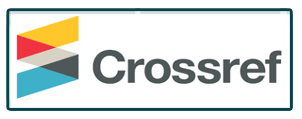The Role of Self-Concept in Shaping Prosocial Behavior in Early Adulthood
Peran Konsep Diri dalam Membentuk Perilaku Prososial pada Dewasa Awal
Abstract
Prosocial behavior, or helping behavior, is an action performed voluntarily by an individual without any external pressure. This behavior is intended to help someone sincerely without considering any personal gain for the helper. However, among individuals in the community, some may not immediately show their concern and may prioritize their own needs first. This study aims to examine the relationship between self-concept and prosocial behavior in early adulthood in Makassar. The study involved 63 early adults in Makassar. The sampling method used was accidental sampling, and hypothesis testing was conducted using simple linear regression. The analysis revealed a correlation coefficient of r=0.744 and a significance value of p=0.000 (p<0.05), indicating a significant relationship between self-concept and prosocial behavior. Additionally, the R-squared value was 0.554, meaning that 55.4% of the variance in prosocial behavior can be explained by self-concept among early adulthood in Makassar. This study suggests that having a strong self-concept is important for enhancing prosocial behavior.
Copyright (c) 2024 St Tzabitah Hafizhah Ma'ruf

This work is licensed under a Creative Commons Attribution-NonCommercial 4.0 International License.













